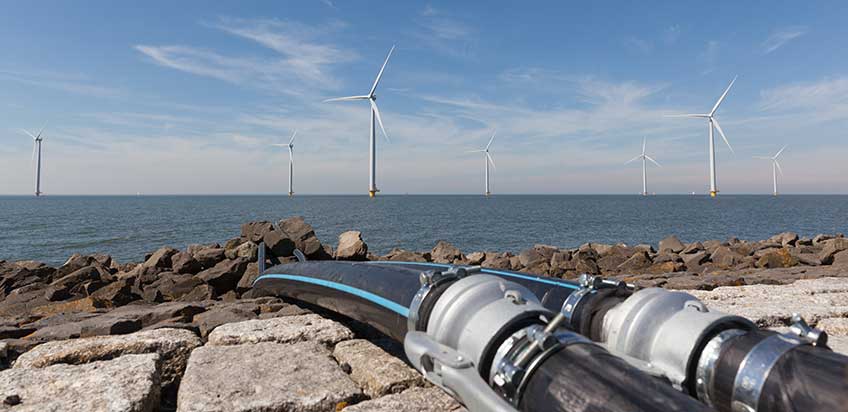الإخبارية
Quality Control in DC-DC Converter Manufacturing: The Role of the Factory
المؤلف : ZYG Power Module Time: 2023-3-31
Quality control is an essential aspect of any manufacturing process, and DC-DC converter manufacturing is no exception. DC-DC converters are electronic devices that convert DC voltage from one level to another, and their quality is critical in many applications, including telecommunications, data centers, and medical devices. The role of the factory in ensuring the quality of DC-DC converters cannot be overstated, as they are responsible for implementing and monitoring quality control measures throughout the production process.
In this article, we will discuss the role of the factory in quality control in DC-DC converter manufacturing, including the measures they take to ensure that the products meet the highest quality standards.
Quality Control Measures in DC-DC Converter Manufacturing
The quality of a DC-DC converter depends on several factors, including the selection of components, design, assembly, and testing. The factory must ensure that each of these steps meets the required quality standards to produce a reliable and durable product.

Component Selection
The first step in ensuring quality is selecting the right components for the DC-DC converter. The factory must work with reputable suppliers and choose components that meet the required specifications. Components that do not meet the specifications can result in a faulty product, leading to increased failure rates and warranty claims.
Design and Assembly
The design of a DC-DC converter must be optimized for its intended application, and the assembly process must be carefully controlled to ensure consistency and reliability. The factory must follow a strict set of guidelines to ensure that the design and assembly meet the required standards.
Testing
The final step in quality control is testing the DC-DC converter to ensure that it meets the required specifications. The factory must perform various tests, including functional testing, electrical testing, and environmental testing, to ensure that the product is reliable and durable.
Role of the Factory in Quality Control
The factory plays a crucial role in quality control in DC-DC converter manufacturing. They are responsible for implementing and monitoring quality control measures throughout the production process to ensure that the products meet the highest quality standards.

The following are some of the roles that the factory plays in quality control in DC-DC converter manufacturing:
Implementing Quality Management Systems
The factory must have a robust quality management system in place to ensure that all processes are controlled and documented. This includes processes for component selection, design and assembly, and testing. The factory must also establish procedures for handling non-conforming products, including identification, quarantine, and disposition.
Conducting Quality Audits
The factory must conduct regular quality audits to ensure that the quality management system is working effectively. Audits can identify areas of improvement and help to prevent quality issues from occurring. Audits can also provide insight into the effectiveness of quality control measures and help to identify areas for improvement.
Supplier Quality Management
The factory must work closely with suppliers to ensure that the components they provide meet the required specifications. This includes establishing a supplier qualification process, conducting regular supplier audits, and ensuring that suppliers have adequate quality control measures in place.
Design and Assembly Control
The factory must ensure that the design and assembly process are controlled and consistent. This includes establishing clear work instructions, training employees, and monitoring the process for deviations. The factory must also have a process for identifying and correcting design or assembly issues that arise.
Testing and Inspection
The factory must conduct thorough testing and inspection to ensure that the products meet the required specifications. This includes functional testing, electrical testing, and environmental testing. The factory must also establish procedures for handling non-conforming products identified during testing and inspection.
خاتمة
Quality control is critical in DC-DC converter manufacturing, and the factory plays a vital role in ensuring that the products meet the highest quality standards. The factory must implement and monitor quality control measures throughout the production process, including component selection, design and assembly.
معلومات ذات صلة
-
2023-7-26
Introducing the HP Series made in China: An AC DC Converter Designed for Efficiency and Performance
In today's fast-paced world, efficiency and performance are essential for any device or equipment. The demand for power conversion solutions that can deliver high efficiency and reliable performance has never been greater. That's why we are proud to introduce the HP Series, our latest innovation in AC DC converters. The HP Series is specifically designed to meet the needs of various industries, including telecommunications, industrial automation, and renewable energy. It offers a wide input voltage range, making it suitable for different applications and environments. Whether you need to power a small device or a large-scale system, the HP Series is capable of delivering the required power with unmatched efficiency. One of the key features of the HP Series is its...
عرض التفاصيل -
2023-5-13
12V AC to DC Converter for LED
Introduction In this article, we will be discussing the 12V AC to DC converter for LED lights. The purpose of this converter is to transform the alternating current (AC) voltage into direct current (DC) voltage in order to power LED lights. What is a 12V AC to DC converter for LED? A 12V AC to DC converter is an electronic device that changes the voltage of an alternating current power source to a direct current power source. This converter is specifically designed for LED lights, which require a constant DC voltage to function properly. Why do we need a 12V AC to DC converter for LED? LED lights are highly popular due to their energy efficiency and long lifespan. However,...
عرض التفاصيل -
2023-4-12
Title: Understanding AC-DC Converters: A Beginner Guide
AC-DC converters, also known as rectifiers, are electronic devices that convert alternating current (AC) into direct current (DC). They are commonly used in a wide range of applications, including power supplies for electronic devices, motor drives, and renewable energy systems. In this beginner guide, we will explain the basic principles behind AC-DC converters and discuss some of their common types. Principle of AC-DC Conversion The basic principle behind AC-DC conversion is to use a rectifying circuit that converts the AC signal into a pulsating DC signal. The rectifying circuit consists of one or more diodes that allow the flow of current in only one direction. The output of the rectifying circuit is then filtered using a capacitor, which smooths out...
عرض التفاصيل -
2023-6-3
ZP Series AC DC Converter: Efficient and Reliable Power Conversion Solution
The ZP series AC DC converter is a power conversion solution that combines efficiency and reliability to provide seamless power conversion for various applications. This series is designed to convert AC power into DC power with high efficiency and low power loss, making it an ideal choice for a wide range of applications. Efficiency One of the key features of the ZP series AC DC converter is its high efficiency. This series is designed to operate at high efficiency levels, which means that it can convert large amounts of power with minimal losses. This makes it an ideal choice for applications that require high power conversion efficiency, such as industrial automation, telecommunications, and medical equipment. Reliability Another key feature of...
عرض التفاصيل -
2023-5-26
Efficient and Reliable ACDC Power Supply SF Series (3~100W)
The SF Series of ACDC power supplies is an efficient and reliable option for powering a variety of electronic devices. With a range of power outputs from 3W to 100W, these power supplies are suitable for a wide range of applications. One of the key features of the SF Series is its high efficiency. These power supplies have an efficiency rating of up to 90%, which means that they waste less energy and generate less heat than less efficient models. This not only helps to reduce energy costs, but also increases the lifespan of the power supply by reducing the stress on its components. The SF Series is also highly reliable, with a long service life and a low failure...
عرض التفاصيل -
2023-11-7
Fully Modular Power Supply: The Perfect Solution for Efficient Cable Management
Introduction: Cable management is a crucial aspect of building a computer system. It ensures that all cables are organized and neatly tucked away, preventing clutter and improving airflow. One of the key components that can aid in efficient cable management is a fully modular power supply. In this article, we will explore the benefits of a fully modular power supply and how it can revolutionize cable management in computer systems. What is a Fully Modular Power Supply? A fully modular power supply is a type of power supply unit (PSU) that allows the user to detach and attach all cables individually. Unlike semi-modular or non-modular power supplies, where some cables are permanently attached, fully modular power supplies provide flexibility in...
عرض التفاصيل


















